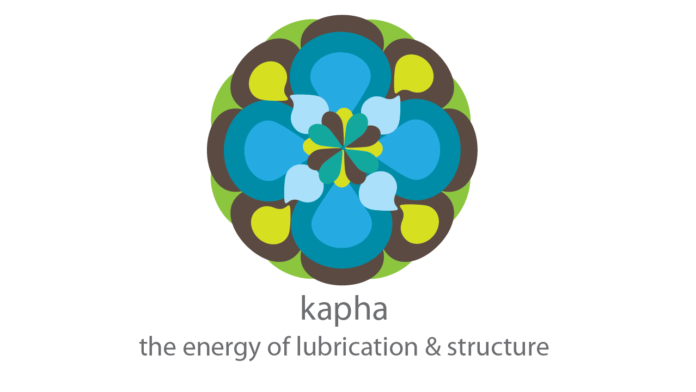Kapha dosha in Ayurveda is generally defined as the biological water humor but also has earthy characteristics. Kapha physical types tend to hold weight and water accordingly. They move more slowly and have a slower metabolism than the other types, but are more grounded, consistent and stable. They prefer to stay where they are and tend to avoid change, holding to and accumulating what they already have. This leads to inertia if their awareness is undeveloped but to a state of calm when their awareness is cultivated.
By David Frawley
Kapha types most commonly suffer diseases of excess mucus and fluids, including disorders of the lungs and respiratory system. They more commonly develop overweight and obesity which further leads to circulatory and heart diseases, including vulnerability to flu and viruses, and making them more vulnerable pandemic conditions.
Health Challenges for Kapha Types Today
In the pandemic era when we are restricted in our movement to avoid infection by the virus, we more easily fall into a state of lethargy, extending to fatigue and depression. We may eat excessively, sleep too much, not exercise enough, spending our time sitting before a screen for entertainment or distraction, in which our bodies and mind cease to be directly active. This reduction of movement allows Kapha dosha to increase and slowly sets in motion the disease process, wherever our energy and circulation gets blocked.
At a psychological level, while this increased Kapha initially can be a protective measure, over time it can prevent positive change and adaptation, creating a longing to return to the past and an uncritical holding on to old habits and attachments. We may build a field of resistance that causes us to go against the forward movement of life.
While usually not as immediately disturbing as the fear and anxiety of Vata, or the anger and aggression of Pitta, this inertia and attachment of Kapha can be harder or slower to change. It can get us trapped in the past or trying to repeat it, rather than being open to our opportunities in the present. We become unwilling to let go of our negative habits or to adapt to the stress of life. This can block not only our minds but also our heart and emotions.
Treatment of Kapha Dosha
Below we have suggested some common health-improving activities for Kapha doahs. Kapha dosha management follows a set of reduction methods to reduce excess weight and fluids, along with various movement-based approaches to increase internal circulation and external action.
Kapha types do best on a lighter diet, avoiding sweet, heavy, greasy, sour, salty and oily food and processed foods of all types. Sugars and carbohydrates should be restricted and they should avoid dairy products. Light eating is necessary with avoiding meals before 10AM or after 6PM. Fasting can be helpful one day a week.
Kaphas in their diet benefit from all types of spices from hot chilies to black pepper, mustard, ginger, turmeric, cumin, cinnamon and cardamom, but not the heavy and greasy food that may go along with them. They do well with green tea and herbal teas like ginger, cinnamon, tulsi, mint and sage between meals.
Yoga and Meditation
Pranayama is essential for keeping Kapha’s energy moving inwardly and not stagnating. It promotes circulation to the brain as well as to the body as a whole. If you have to stay in your house or flat, make sure to have a good air filter to freshen the air. Use some fragrances like eucalyptus, mint, sage, tulsi, cedar to help clear the lungs. Ayurvedic nasya oils or the use of the neti pot can help before pranayama practices. Stimulating pranayamas like bhastrika and kapalabhati are good initially followed by alternate nostril breathing.
More active exercise is great, including stronger asanas and vinyasas, or aeorobic workouts as in a gym, better yet hiking or climbing in nature. Kapha types need to push themselves, exerting themselves with more effort, challenging their inertia. They need to sweat to improve their circulation and Ayurveda recommends various sweating, steam or svedana therapies after with oil massage with warming oils.
At a psychological and spiritual level, Kaphas also require movement, creating space, letting go of the past, developing detachment, and release from memories and clinging emotions. They need to develop independence and a more assertive nature.
Kaphas must keep their minds active, studying, thinking and learning, whether mundane topics or yogic texts and Vedantic philosophy. Chanting mantras can be helpful, or reading inspirational biographies. Concentration exercises are very helpful. They must avoid mere enjoyment or indulgence or dependency upon external stimulation. Particularly to be avoided is sleep during the day.
Devotion is natural to their watery and receptive nature, but should not degenerate into mere sentimentality. They like to help, serve and care for others and so Karma Yoga is good. But they can be possessive, controlling and restrictive, taking more than what they actually need. They like to be part of a group or social movement but need to develop critical insight, not just personal or emotional connections.
Conclusion
Yet Kapha does provide the consistency and stability to handle stress and the uncertainties of our changing world situation, holding a consistency of faith and determination in the face of obstructions and opposition. They can help ground the anxiety of Vata or soften the anger of Pitta, bringing in a more maternal or nurturing energy. Yet they must be willing to change and adapt for this to occur, not simply hold to the past. Life is never in the past or even in the future, it is in the presence of nature and the calm of our own mind and senses.
Article Courtesy : www.vedanet.com








